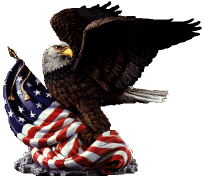

Published February 9, 1990
Our chosen profession is indeed a proud one, filled with long-standing traditions.
One thing that truly sets us apart from our civilian counterparts is comaraderie.
Just what is camaraderie which, like family tradition, is passed on to each member of our profession?
Webster defines it as "loyalty and warm friendly feelings among comrades."
Our definition transcends the dictionary's as stated in Article One of the Code of Conduct: "I am prepared to give my life..." for our country, the forces that protect it and our way of life. That's camaraderie you don't find working for IBM or Delta!
Our history is full of vivid examples: every war or skirmish provides us with new examples. Take SSgt. Henry E. Erwin who was wounded when a phosphorus bomb exploded inside his World War II B-29. Realizing that the bomb meant certain death of the entire crew, he ignored his wounds, grabbed the bomb with his bare hands and, disregarding the severe burning, jettisoned it out the copilot's window. He survived to receive the Medal of Honor.
Or look at Medal of Honor recipient A1C John Levitow, who, after being wounded by shrapnel over Vietnam, threw himself on a magnesium flare that was blown into spilled ammunition boxes. Fearing for the safety of his aircrew he smothered the flare with his body while he dragged it to the open door where it ignited almost instantaneously.
You're probably asking by now what all this has to do with the chief mentioned in the title. It's my way of passing on a part of his attitude about camaraderie. CPO Ervon G. Donahoo is my father. You see, I didn't come about this attitude out of the blue - I was raised to be a professional. I'm carrying on a family tradition.
My father retired after 27 years in the Navy. When I joined the "fly-boy" branch, he passed on his best piece of advice from a point of view that spanned three wars: "Remove the word "can't" from your vocabulary. It's merely an excuse for the difficult."
His advice worked well in war - think of how many others would have died if Airman Levitow or Sergeant Erwin had thought for an instant, "I'm wounded, I can't save my fellow airmen."
His advice works equally well in the peace time service. In these lean budget times it will be increasingly easy to say, "I can't because we don't have the money." The challenge is now to do more with less.

It is indeed an honorable profession, this "Profession of Arms."
 HOMEPAGE...so you can sign the "GuestBook"
HOMEPAGE...so you can sign the "GuestBook"
© 1997 ervd@hotmail.com